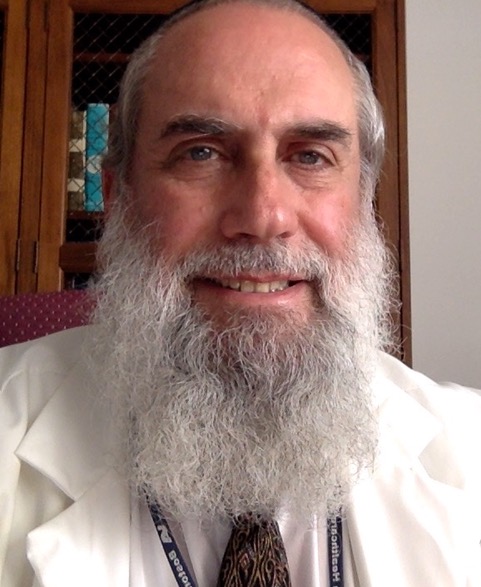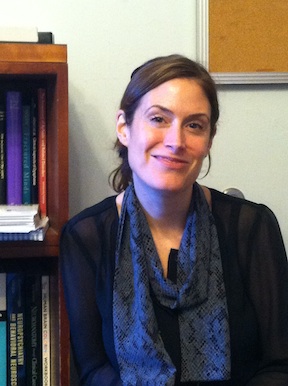BU Alzheimer’s Disease Research Center Strives to Reduce Human, Economic Toll Associated with the Disease
September is World Alzheimer’s Month, which seeks to raise awareness and reduce the stigma of a devastating disease that touches so many lives.
The human toll of the disease is staggering. More than 6 million Americans are currently living with Alzheimer’s disease (AD), and this number is projected to rise to nearly 13 million by 2050 according to the Alzheimer’s Association. The disease attacks the brain cells, causing memory loss, behavioral changes, and other problems that are disruptive to everyday life.
Reducing this burden is the mission behind the Boston University Alzheimer’s Disease Research Center (ADRC). Established in 1996, the Center has recently been awarded a new, $10 million, five-year grant by the National Institute on Aging of the National Institutes of Health. It is one of 33 federally funded Alzheimer’s centers nationwide.
“Our goal is to reduce the human and economic costs associated with Alzheimer’s disease and related disorders, such as chronic traumatic encephalopathy (CTE), through the advancement of knowledge and the pursuit of better diagnosis and treatment,” said Neil Kowall, MD, director of the ADRC and BUSM professor of neurology. “The Center provides participants, data and a collection of well-prepared brain material appropriate for the research requirements of local and national research efforts.”
 Neil Kowall
Neil Kowall
The ADRC team spans multiple disciplines and professions, including Boston University faculty from the School of Medicine and the Charles River Campus, postdoctoral fellows and trainees, and a diverse staff of study coordinators, research nurses, technicians and research assistants.
In addition to its research goals, the Center provides educational resources to patients, healthy aging individuals, caregivers and healthcare professionals. It also partners with local, affiliated clinics at Boston Medical Center and various U.S. Department of Veterans Affairs (VA) medical centers to assure that all individuals with Alzheimer’s disease and related disorders receive the best care.
Research
The Center’s renewed funding will allow the team to continue its important work toward improving diagnosis, treatment and prevention of AD.
“Right now, there is no truly effective treatment for Alzheimer’s disease—the disease is relentlessly progressive,” said Kowall. “The only way to improve diagnosis and to find better treatments and cures is through research.”
There are a variety of ongoing research studies at the Center. Some studies help researchers learn about the changes that occur in memory as people age; family and genetic studies look at the link between AD and genetics; caregiving studies focus on issues related to activities in daily life; and imaging and biofluid studies help researchers learn how brain scans and blood tests can provide earlier detection of AD.
The Center is also engaged in research investigating how brain trauma may affect risk for and clinical symptoms of Alzheimer’s disease and related dementias, including CTE. A subset of the research participants have played contact sports, are combat veterans or have experienced intimate partner violence.
One new project is examining “digital phenotypes” using data from wearable devices. Researchers are determining if data from smartphones and activity trackers can detect dementia earlier—or more easily—than traditional pencil and paper testing.
The Center is also assessing whether computerized memory tests that are connected to brainwave-detecting electroencephalography (EEG) devices can diagnose and evaluate the severity of AD with improved sensitivity and specificity compared to traditional measures.
Education
As a leading educational resource on AD, the Center hosts numerous events and programs for community members. The Center also conducts and supports professional educational activities and has trained dozens of healthcare professionals and researchers over the past 25 years.
To expand its reach and enhance efforts to educate the local community about AD, the ADRC partners with various agencies throughout the state.
Andrew Budson, MD, the Center’s associate director for Research and BUSM professor of neurology, points to education as an important tool when it comes to AD diagnosis and care.
 Andrew Budson
Andrew Budson
“Understanding the differences between changes in memory due to normal aging versus due to Alzheimer’s disease is tricky, and education about those differences is crucial,” he said.
Recognizing that education is a vital component to managing Alzheimer’s disease, Budson and Maureen O’Connor, PsyD, leader of the ADRC Research Education Component, recently published Six Steps to Managing Alzheimer’s Disease and Dementia.
 Maureen O’Connor
Maureen O’Connor
“We wrote this book to provide families with a straightforward guide to manage all the problems that come with Alzheimer’s disease and dementia,” Budson said.
The book breaks down the overwhelming process of caring for a loved one with AD into six digestible steps. These steps cover understanding the disease, managing its problems, reviewing medications that can improve daily function, building a care and support team, sustaining relationships with a loved one suffering from AD and navigating long-term care.
“It’s important to let individuals and families know that we can do much more to help someone with Alzheimer’s disease when they come to us in the earliest stages,” Budson said.
The ADRC website provides helpful resources for those who want to learn more about AD, including an overview of the disease, answers to FAQs, a calendar of events and other video resources.
Clinical Care
Although the ADRC does not provide clinical care, it partners with local clinics that offer services to individuals and families affected by AD and related memory problems.
Jesse Mez, MD, and Michael Alosco, PhD, co-leaders of the ADRC Clinical Core and associate professors of neurology, launched a Memory and Aging Clinic at Boston Medical Center in spring 2020. Mez, a neurologist with subspecialty training in behavioral neurology and neuropsychiatry, is the Clinic’s medical director, and Alosco, a licensed clinical neuropsychologist who specializes in the neuropsychological evaluation of dementia, serves as neuropsychology director. The clinic closely integrates patient care, education and research, providing patients and family members the opportunity to participate in an array of research studies along with standard clinical treatment.
O’Connor directs the Memory Diagnostic Clinic at the VA medical center in Bedford. The Bedford clinic serves veterans with memory problems and mild dementia, and provides information to patients and caregivers concerning diagnosis, family planning and patient care.
Budson and his colleague, Katherine Turk, MD, co-leader of the ADRC Outreach, Recruitment and Engagement Core, oversee the Memory Disorders Clinics at the VA medical centers in Boston and Brockton. These clinics evaluate veterans with common as well as uncommon disorders of aging including not only Alzheimer’s disease but also vascular dementia, dementia with Lewy bodies, frontotemporal dementia, and primary progressive aphasia.
View all posts